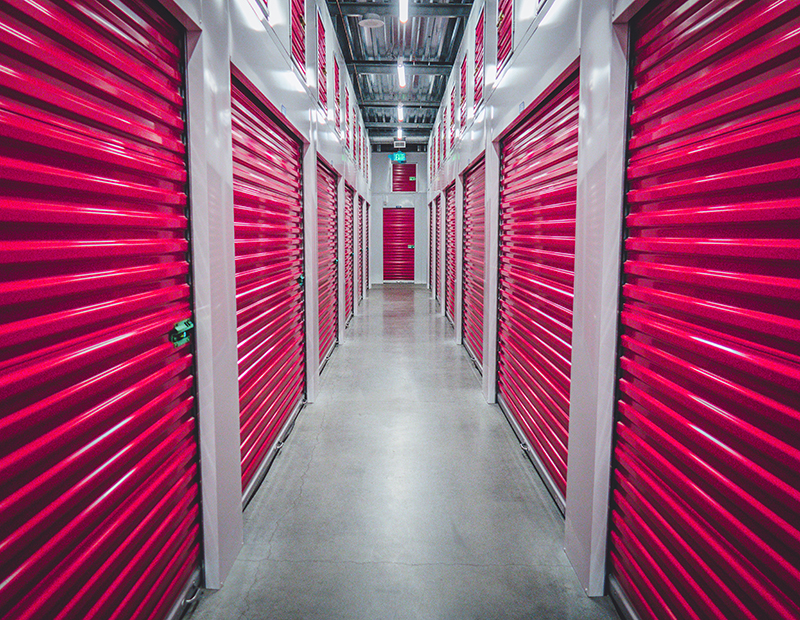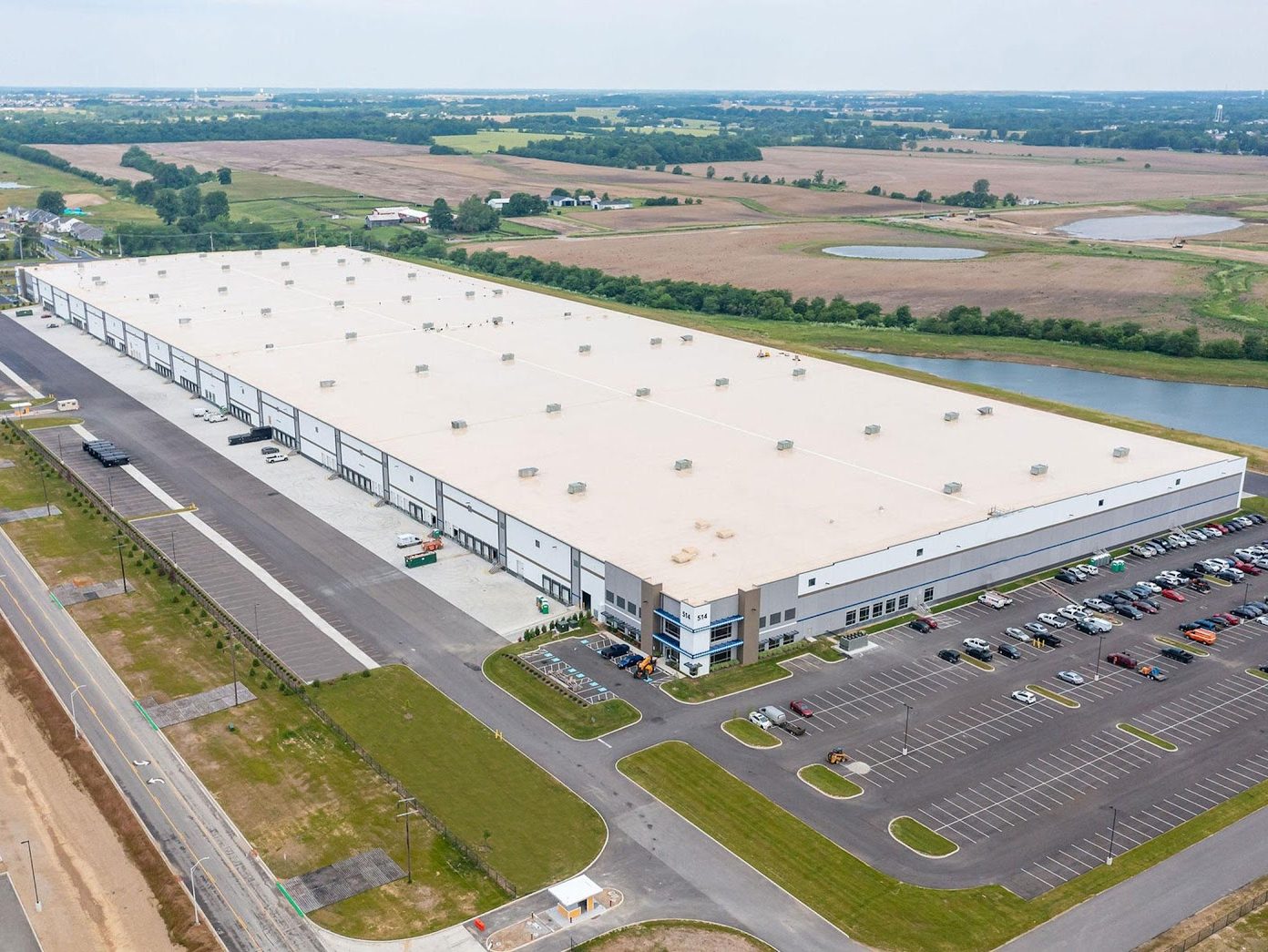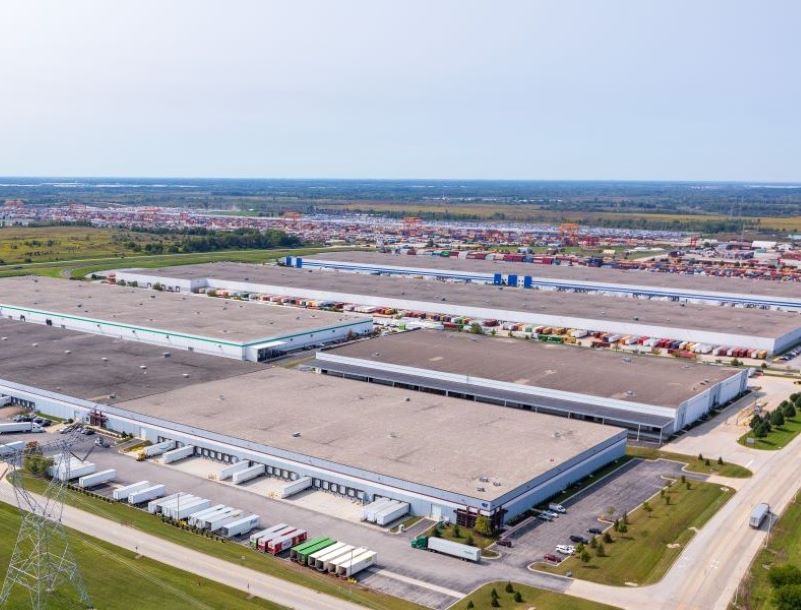From Jernigan Capital to NexPoint Storage
Former Jernigan Capital CEO John Good unveils plans and strategies for NexPoint’s new platform dedicated to self storage.
After entering an approximately $900 million merger agreement with Jernigan Capital in August, NexPoint has launched NexPoint Storage Partners, a platform dedicated to the self storage sector. NexPoint Storage has a total of 69 self storage investments across the U.S.—of which 38 are wholly-owned—and total investments account for $1.1 billion.
Commercial Property Executive sat down with John Good, chief executive officer of NexPoint Storage (formerly CEO of Jernigan Capital), in a conversation about the company’s strategies and plans for the future.
Jernigan Capital has recently merged with NexPoint and just launched a platform dedicated to self storage. What can you tell us about the process of this deal? How has the pandemic impacted your timeline?
Good: NexPoint first invested in Jernigan Capital in 2016. They were one of the largest investors and had a seat on the board, so really understood the business and strategy. Both sides recognized the opportunities that could arise from combining JCAP’s self storage expertise with the resources and capabilities of NexPoint’s real estate platform. It was always a natural fit, but the pandemic served as a catalyst that drove both parties to pursue those opportunities in earnest. And while COVID-19 delayed many deals in our industry, it actually accelerated our timeline, so once NexPoint put forward a proposal, things moved very quickly.
READ ALSO: What’s Next for the Self Storage Sector?
At NexPoint Storage you will continue to serve as chief executive officer. How much of JCAP’s business strategies do you plan to keep and what are some of the changes that you intend to implement?
Good: JCAP initially focused on development financing but gradually expanded the business model to include outright ownership of facilities through a complementary acquisition strategy. NexPoint has always been a proponent of JCAP’s strategies and supported the evolution from development financing to outright ownership via developer buyouts. NexPoint Storage has no plans to change these strategies. That said, given where we are in the business cycle, there may be fewer occasions to deploy the legacy strategy of development financing. This is part of the reason we feel like we launched NexPoint Storage at the ideal time. We can be deliberate in how and when we deploy these legacy strategies while adding new strategies to our toolkit that we can use in different market conditions.
The biggest changes we plan to make will be the addition of other complementary strategies that leverage the broader NexPoint platform and reflect our outlook for the sector. For instance, we plan to look beyond our existing financing relationships and pursue acquisitions of value-add and lease-up properties from other third-party owners. This new growth strategy is a valuable tool to have at our disposal at this point in the cycle.
We may also pursue direct development opportunities, building strategies that tap into our network of developer partners, who could manage NexPoint Storage development projects under a fee-based structure. Additionally, there may be opportunities to buy and reposition existing facilities, applying our knowledge and expertise in GenV facilities to unlock value.
We still plan to finance development projects as opportunities arise, and will continue to buy out developer partners, which will be a focus for 2021. But we also will continue to evolve the business model and believe the flexibility that NexPoint Storage has, will be a key driver of success, allowing us to adjust our approach for any environment and deploy the strategy best suited for the given conditions.
You’re targeting Generation V facilities in major metropolitan areas across the U.S. How do these facilities differ from traditional storage developments?
Good: Generation V facilities are vertical buildings—the “V” in GenV—with modern amenities such as heating/air conditioning, WiFi, LED lighting, and advanced security systems, as well as elevator access. As a result, these facilities are set up in a way that allows you to conduct business in a contactless manner.
GenV facilities require much less land—generally an acre or less—than the older-generation, drive-up facilities, which require several acres. Despite the small footprint of GenV facilities, they are typically larger, with over 70,000 net rentable square feet, while older facilities’ square footage is typically below 60,000 square feet.
If you’ve spent time in any urban area, then you can probably picture a GenV facility, especially since they tend to be prominently located and are attractive buildings that often look more like offices than storage buildings. These are not the storage facilities you see out in industrial areas; these are properties at Main & Main, located near the urban dwellers who make up our tenant population. As residents of urban areas, this group is mobile, lives in smaller spaces, and values amenities and convenience. They need storage and look to GenV facilities to meet that need.
As the industry evolved, we narrowed our focus to GenV because of its alignment with broader secular trends. We believe these state-of-the-art, customer-centric facilities, which are located in top markets, will continue to command higher rents and, in turn, drive stronger earnings growth and value creation.
Primary self storage markets have become highly competitive in the past couple of years. How do you plan to stay ahead of the competition?
Good: The launch of NexPoint Storage was a way to position us competitively for the self storage industry’s next chapter. NexPoint Storage combines the knowledge and expertise that JCAP had in the self storage sector—particularly around GenV facilities—with the extensive resources of NexPoint’s real estate platform. The JCAP team has experience in all generations of facilities across diverse locations. As a result, we believe we are uniquely equipped to pick, acquire, entitle, and develop the best sites in the best markets. NexPoint amplifies that expertise, providing scale and sophistication that significantly expands our universe of investment opportunities.
A key partner in NexPoint Storage is Extra Space Storage, which will manage all of NexPoint Storage’s wholly-owned facilities. We believe we have the best self storage manager in the world in Extra Space, which keeps us on the cutting edge of digital marketing, revenue management, customer experience, and other industry innovations.
READ ALSO: Extra Space Storage Adds 37 Properties to Management Portfolio
Are you considering entering secondary markets in the future?
Good: Our focus has always been demand-driven; to put it simply, we try to be in markets where people need storage, but don’t have easy access to it. When JCAP started in 2015, we focused on primary markets due to the pent-up demand for new self storage space in large population centers.
Now that the primary markets have adequate—and in some cases, more than adequate—supply to meet that demand, NexPoint Storage would consider establishing a presence in smaller markets, but only if we can fill a need and operate without the threat of major competition. We believe a number of secondary, tertiary, and suburban markets have a shortage of Class A self storage supply, but often these markets don’t have significant demand drivers or barriers to entry. Those are the factors that will dictate which smaller markets if any, we pursue.
NexPoint has significant expertise in the multifamily and single-family rental sectors, which are complementary to self storage in several ways. NexPoint’s footprint in those sectors covers a lot of smaller markets that we’ve identified as potential targets. NexPoint’s experience in those markets and knowledge of the prospective tenant populations—which has significant overlap with that of multifamily and single-family rental properties—will be a valuable resource as we evaluate new markets.
What are your top three objectives you want to achieve with NexPoint Storage Partners in 2021?
Good: We launched NexPoint Storage in early December and have hit the ground running to execute the vision for the new business. There are so many opportunities to consider, and we keep finding new and exciting ways to leverage the resources of NexPoint, Extra Space, and their extensive networks. Our main areas of focus for 2021 are making sure NexPoint Storage is ideally positioned for those opportunities and prioritizing our work so we’re pursuing the right opportunity at the right time.
With that backdrop, my top three objectives for NexPoint Storage are the following:
1. Successfully integrate the former JCAP team into the NexPoint platform.
2. Raise significant new equity and debt capital to be deployed for the acquisition of lease-up and value add self storage properties.
3. Bring additional existing properties into our wholly-owned portfolio through developer buyouts.
Read Also: Top 5 Self Storage Markets for Transaction Activity
How do you expect the deal environment to change in 2021?
Good: The fear of transacting that we saw at the height of the pandemic should dissipate with a COVID-19 vaccine rollout and the gradual reopening of the country throughout the year. As a result, we expect to see a favorable deal environment in 2021. It will be easier to transact and therefore more practical to shop assets, which should drive a higher volume of deals.
As interest rates are expected to remain low throughout 2021 (and into 2022), the massive demand for cash-flowing and yield-producing investments shows no signs of slowing this year. We believe this search for yield will continue to be a major trend across the investment landscape. In the self storage sector, we think this is another force that will drive deal volume. Any time there is a large amount of capital looking for a home, there tends to be a lot of transactions. We believe that there is a large amount of institutional capital interested in investing in self storage, and that will bring out the sellers.










You must be logged in to post a comment.